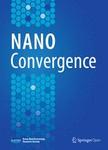版权所有:内蒙古大学图书馆 技术提供:维普资讯• 智图
内蒙古自治区呼和浩特市赛罕区大学西街235号 邮编: 010021

作者机构:Department of Electrical and Biological Physics Kwangwoon University Seoul 139-701 South Korea Center for Functional Connectomics Korea Institute of Science and Technology Hwarangno 14-gil 5 Seongbuk-gu Seoul 136-791 South Korea Department of Electrical and Computer Engineering University of Minnesota Minneapolis 55455 MN United States Department of Biophysics and Chemical Biology Seoul National University Seoul 151-747 South Korea Department of Physics and Astronomy and Institute of Applied Physics Seoul National University Seoul 151-747 South Korea
出 版 物:《Nano Convergence》 (Nano Converg.)
年 卷 期:2014年第1卷第1期
页 面:1页
学科分类:0810[工学-信息与通信工程] 07[理学] 070203[理学-原子与分子物理] 0805[工学-材料科学与工程(可授工学、理学学位)] 0702[理学-物理学] 0812[工学-计算机科学与技术(可授工学、理学学位)]
主 题:Cell adhesion Cell differentiation Cell growth Cell proliferation Nanotube Nanowire
摘 要:The behaviour of cells can be controlled by various microenvironments such as nanostructured cell-culture substrates with controlled nanotopography and chemical properties. One of promising substrates for controlled cell growth is a solid substrate comprised of synthetic one-dimensional nanostructures such as polymer nanofibers, carbon-based nanotubes/nanofibers, and inorganic nanowires. Such nanotube/nanowire structures have a similar dimension as extracellular matrix fibers, and their nanotopography and chemical properties can be easily controlled, which expands their possible applications in controlling the growth and differentiation of cells. This paper provides a concise review on the recent applications of solid substrates based on synthetic nanowires/nanotubes for controlled cell growth and differentiation. © 2014, Baik et al.;licensee Springer.